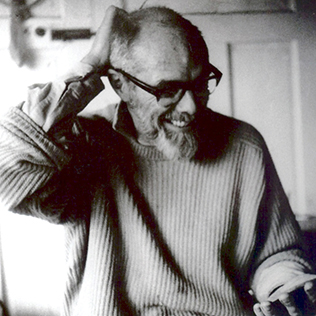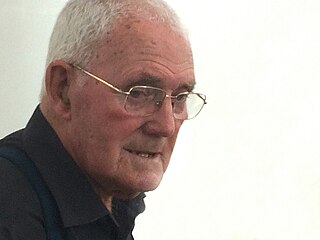
Michael Te Rakato Parekōwhai is a New Zealand sculptor and a professor at the University of Auckland's Elam School of Fine Arts. He is of Ngāriki Rotoawe and Ngāti Whakarongo descent and his mother is Pākehā. Parekōwhai was awarded an Arts Foundation of New Zealand Laureate Award in 2001. He represented New Zealand at the 2011 Venice Biennale.

Fatu Akelei Feu'u is a noted Samoan painter from the village of Poutasi in the district of Falealili in Samoa. He has established a reputation as the elder statesman of Pacific art in New Zealand.
Terry Robin George Stringer is a sculptor from New Zealand.

Paul Hugh Dibble was a New Zealand sculptor.

Paul John Beadle was a New Zealand sculptor and medallist.
Christine Hellyar is a New Zealand artist who makes sculptures and installations.

Maureen Robin Lander is a New Zealand weaver, multimedia installation artist and academic. Lander is of Ngāpuhi and Pākehā descent and is a well-respected and significant artist who since 1986 has exhibited, photographed, written and taught Māori art. She continues to produce and exhibit work as well as attend residencies and symposia both nationally and internationally.

Dame Robin Adair White is a New Zealand painter and printmaker, recognised as a key figure in the regionalist movement of 20th-century New Zealand art.

Arnold Manaaki Wilson was a New Zealand artist and educator of Māori descent. He is regarded as a pioneer of the modern Māori art movement.

Suzanne Goldberg (1940–1999) was a New Zealand painter, born in Auckland, New Zealand.
Elizabeth Froomes Christie was a New Zealand painter.
Carole Marie Shepheard is a New Zealand artist. She specialises in printmaking and her work is held in national and international collections including the Museum of New Zealand Te Papa Tongarewa and the Auckland Art Gallery Toi o Tāmaki.
Donald Clendon Peebles was a New Zealand artist. He is regarded as a pioneer of abstract art in New Zealand, and his works are held in the collections of Auckland Art Gallery Toi o Tāmaki, the Museum of New Zealand Te Papa Tongarewa, and Christchurch Art Gallery.
John Stanley Edgar was a New Zealand sculptor and medallist.
Mary-Louise Browne is a New Zealand artist, best known for her public word ladders, and other works using text. Her works are held in the permanent collections of the Te Papa, Auckland Art Gallery and the Govett-Brewster Art Gallery.
Marté Szirmay is a Hungarian New Zealand artist whose works are held in the collections of the Auckland Art Gallery Toi o Tāmaki and Museum of New Zealand Te Papa Tongarewa.
Denise Kum is a New Zealand artist. Her works are held in the collection of Auckland Art Gallery Toi o Tāmaki, Museum of New Zealand Te Papa Tongarewa, and the University of Auckland art collection.

William Robert "Jim" Allen was a New Zealand visual artist. In 2015, he was named an Arts Foundation Icon by the Arts Foundation of New Zealand, an honour limited to 20 living people. Allen turned 100 years old in July 2022, and the occasion was marked by the Auckland Art Gallery with an exhibition of his works.

Mountain Fountain is a public sculpture located in the Parnell suburb of Auckland, New Zealand. It was designed by Terry Stringer and depicts a bronze Cubist volcano thrusting up from a concrete base, with streams of water falling from three of the sculpture's four faces. It was erected in its original location in Aotea Square in 1981. In 2008, it was decommissioned and placed in storage during redevelopment of the square. It was relocated to its current site in the forecourt of Holy Trinity Cathedral in 2010.

Karangahape Rocks, also known as the Karangahape Road Fountain is a public sculpture located in Pigeon Park on Karangahape Road in Auckland, New Zealand, created by New Zealand sculptor Greer Twiss as his first large-scale public commission. The sculpture, formerly a working fountain, depicts three bronze spherical shapes and two seated figures. Unveiled in 1969, the piece is one of the earliest contemporary public sculptures in Auckland.











